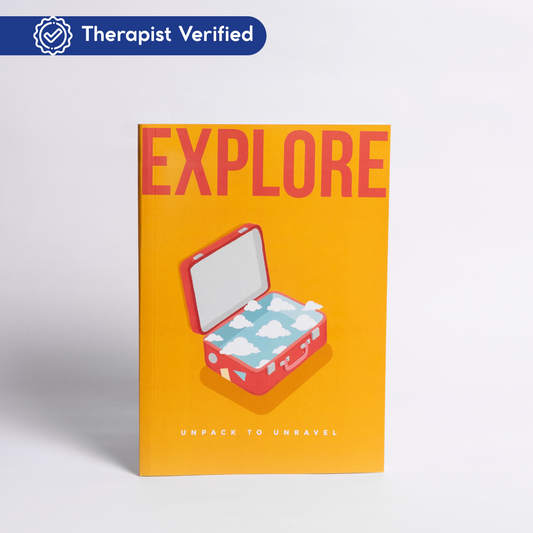It has been a few weeks since my last session with Sita, a lawyer; a person who describes herself as ‘always busy, wanting more work and eager to perform’. Like most people I know, she enjoys what she does, wants to get better and keep climbing the ladder. The theme of our sessions usually revolves around work-life balance, finding self-worth outside of work, and most importantly, her need for validation (sounds familiar doesn’t it?). A few seconds into our last session, Sita declared that she told her super boss that she would not work with a certain colleague. At this point, I was flabbergasted.
“What?!” I squealed.
(Side note: yes, therapy is a human process and it is completely normal for your therapist to respond with humanness).
When she narrated the entire incident to me, I could tell that she was assertively setting a boundary at her organisation. Her reasons were simple: the hostility in their working relationship, the constant criticism, and the belittling (and often, loud) tone used by her colleague. In her conversation with her super boss, Sita stated that while she set her boundaries, she cited incidents that supported her and had hard, fact-based evidence where she did (on multiple occasions) call out her colleague to lower their volume, communicate the same information less aggressively, and that one time, when she even made a general request to stop belittling her.
What do you think happened next?
Her superboss “requested” her to figure it out with her colleague, “advised” her that it was not sensible to burn bridges, and “told” her that they could take her off the project.
Now, let me take this opportunity to introduce you to the term “psychological safety”. Psychological safety is a term that has gained a lot of attention in recent years, especially in the workplace. It refers to the ability of employees to express their thoughts, opinions, and ideas, without the fear of judgement, retaliation or consequences.
Psychological safety in the workplace is essential for creating a healthy work environment that promotes collaboration, creativity, and innovation. In fact, a study published by the Indian Workplaces found that 45% of employers believe that psychological safety is a strong performance indicator and 47% believe it is a crucial need.
Now, let’s introspect, do you think Sita feels psychologically safe at work?
Well, that was rhetoric because it is natural for Sita to feel unsafe.
If the reasons weren’t obvious, let me list them down for you. First of all, it takes courage to speak to your superior about something that is not working for you at work (a.k.a Sita showed her vulnerability). Her feelings of fear were not validated, and on the contrary, she was asked to “power through” it. Sita was left feeling invalidated, unheard, ignored, and helpless.
Research states that the main reasons why employees feel psychologically unsafe at work is due to mental health issues, unaddressed grievances and fear of losing anonymity. Previous negative experiences in the workplace or a lack of trust in management are also key contributors. These factors can lead to a toxic work environment that stifles innovation, creativity and leads to high turnover rates.
Feeling psychologically safe to express ideas is the right of every employee and the responsibility of this falls on the leadership of an organisation. Here’s what you can do:
- Encourage open communication: Leaders should create an environment where employees feel comfortable sharing their thoughts and opinions. This means actively listening to what employees have to say and acknowledging their contributions. When employees feel heard and valued, they are more likely to share their ideas and collaborate with others.
- Foster a culture of trust: Trust is a crucial ingredient in psychological safety. When employees trust their colleagues and leaders, they are more likely to take risks, be vulnerable, and collaborate effectively. Leaders should model trustworthy behaviour and create opportunities for team members to build trust with each other.
- Foster a sense of belonging: Feeling like you belong is a critical aspect of psychological safety. Leaders should create an environment where employees feel valued, included, and appreciated. This can be done by celebrating diversity, providing opportunities for employees to connect and socialise, and fostering a sense of community within the workplace.
- Provide feedback constructively: Feedback is necessary for growth and development, but it can also be anxiety-inducing if delivered poorly. Leaders should provide feedback in a constructive and empathetic manner, focusing on specific behaviours and actions rather than personal attributes. Feedback is a two-way process, this means leaders should be empathetic while giving and receiving feedback. This encourages transparency within the workplace. When employees feel comfortable receiving feedback they are more likely to take risks and innovate.
- Encourage learning from mistakes: Mistakes are a natural part of the learning process, but they can also be stigmatised in some workplaces. Leaders should create an environment where mistakes are viewed as opportunities to learn and grow, rather than reasons for punishment or shame. Employees need to know that making mistakes is okay and that they won't be punished for them. When employees feel safe to take risks and make mistakes, they are more likely to innovate and try new things.
- Emphasise collaboration: Collaboration is a powerful tool for promoting psychological safety. When employees feel that their contributions are valued and that they are part of a team, they are more likely to take risks and share their ideas. Leaders should encourage collaboration by setting team goals, promoting cross-functional projects, and recognizing team accomplishments.
- Offer support and resources: Employees who feel supported by their leaders and colleagues are more likely to feel psychologically safe. Leaders should offer resources, such as mental health support, career development opportunities, and flexible work arrangements, to help employees thrive.
- Model vulnerability: Leaders who model vulnerability by admitting their own mistakes, asking for help, and expressing their emotions can create a culture of psychological safety. When employees see that their leaders are not perfect and are willing to be vulnerable, they are more likely to feel comfortable doing the same.
- Respecting professional boundaries: Creating and respecting professional boundaries is another essential aspect of creating a psychologically safe workplace. Employees should feel that their personal space and privacy are respected, and they are not subjected to harassment, bullying, or discrimination. This creates a work environment that is supportive, productive and collaborative
To identify if an employee feels psychologically unsafe, one must look out for signs such as hesitancy in expressing themselves, a lack of comfort level in expressing things to managers, high turn-over rate, low engagement and productivity, lack of collaboration and an employee's feeling of being invalidated or unheard.
It is important to recognize that psychological safety in the workplace is not just nice to have but is a necessity for every organisation if they desire to thrive, innovate and take care of their team members. When employees feel safe, supported, and valued, they are more likely to contribute to the organisation's success.
If you would like to know more about how we can work together to better the emotional well-being of your organisation visit our ECP here.






